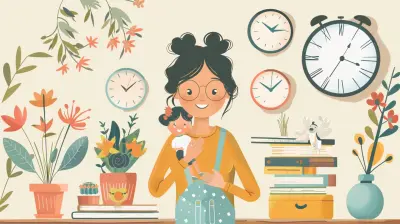Potty Training for Sensitive Kids: Gentle Approaches That Work
16 October 2025
Ah, potty training — the magical rite of passage filled with cheerleader-style encouragement, sticker charts, and more laundry than you ever thought humanly possible. But what happens when your little one is extra sensitive? You know, the kind of kid who notices if you switch brands of applesauce and has a meltdown when their sock seam “feels weird.” If you're nodding right now, welcome to the club.
Potty training a sensitive child isn’t a one-size-fits-all gig. You need a gentler, more thoughtful approach — one that respects their emotional radar and honors their unique rhythm. Don't worry, you’re not alone, and yes, your kiddo will not be in diapers forever.
So let’s roll up our sleeves (not literally, because, well... accidents), take a deep breath, and talk about effective, compassionate strategies that actually work.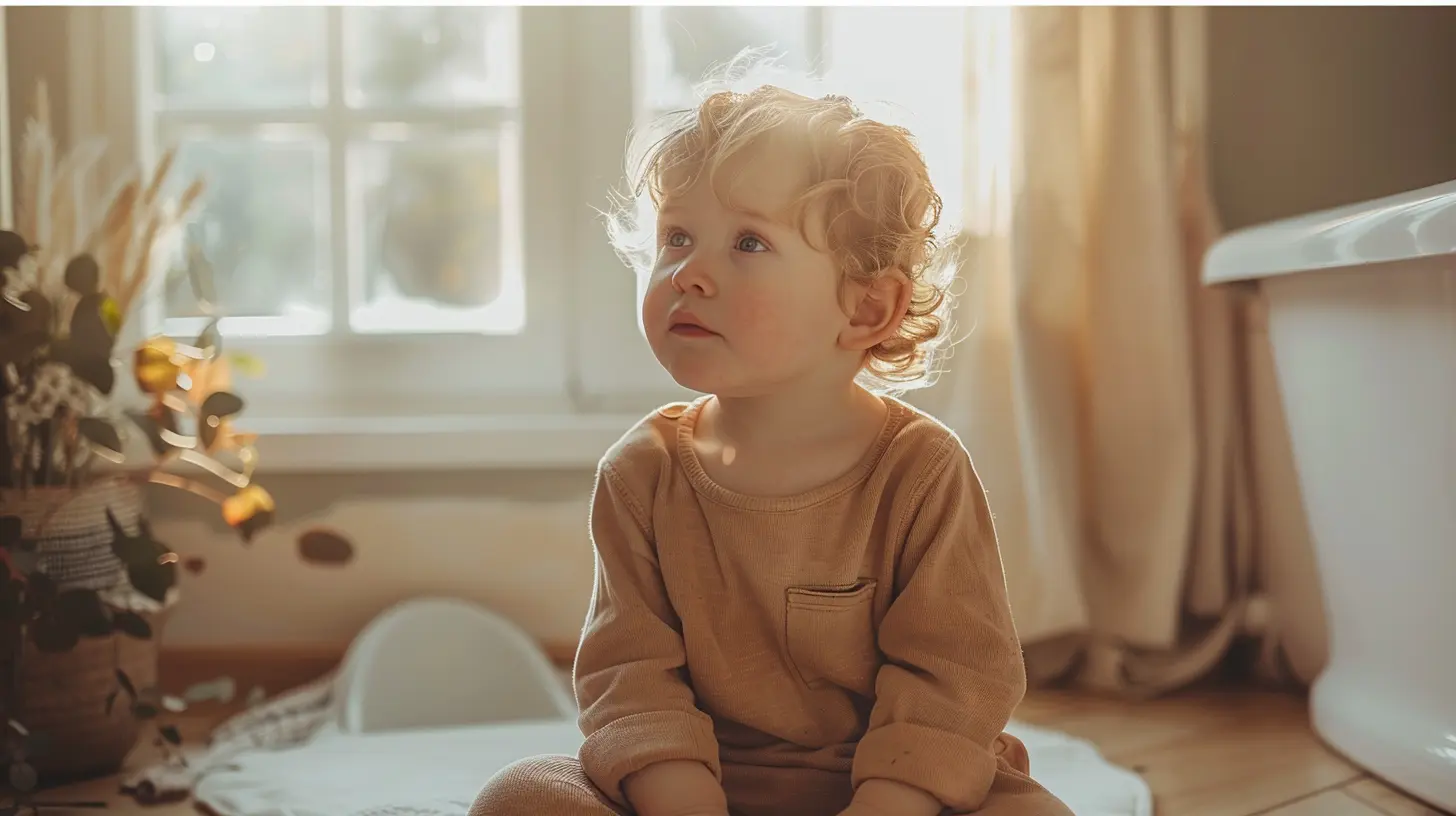
Why Some Kids Are More Sensitive Than Others
Before we dive into techniques, let’s talk temperament.Some children are naturally more cautious, empathetic, and tuned into their surroundings. These are the kiddos who startle at loud noises, cling tightly when meeting new people, or cry when a cartoon character stubs their toe. They’re not being dramatic — they’re deeply feeling their way through the world.
Now toss in the idea of pooping in a plastic chair and flushing it away into the unknown? That’s a LOT to process for a sensitive soul.
These kids may be:
- Physically sensitive to textures, sounds, or sensations
- Emotionally sensitive and prone to fear, frustration, or embarrassment
- Socially cautious, feeling pressure to "do it right" or comparing themselves to others
Knowing this changes the potty training game. The goal isn’t just dry underwear — it’s helping your child feel safe and confident in a vulnerable moment.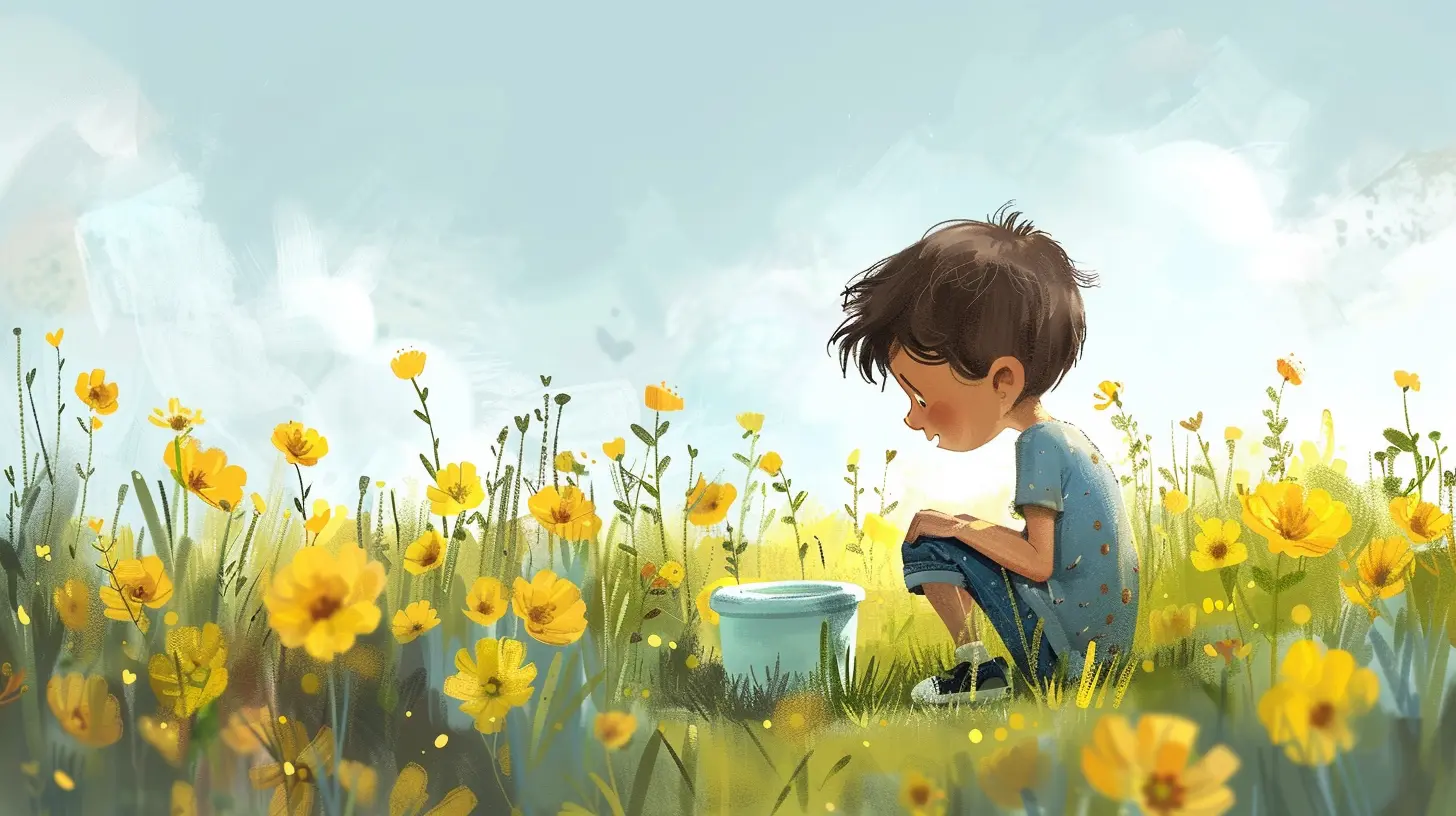
Signs Your Child May Be Sensitive
Still wondering if this article is for you? Here are a few tell-tale signs that you’re parenting a sensitive trainee:- They get easily overwhelmed by new environments
- They’re highly attuned to changes in routine
- They’ve had strong reactions to previous training attempts
- They seem anxious about using the toilet
- They often express big feelings in small situations
If your kiddo checks a few of these boxes, keep reading. We’ve got gentle hacks, tried-and-true tips, and a few hilarious stories that’ll make you feel like a superhero on this journey.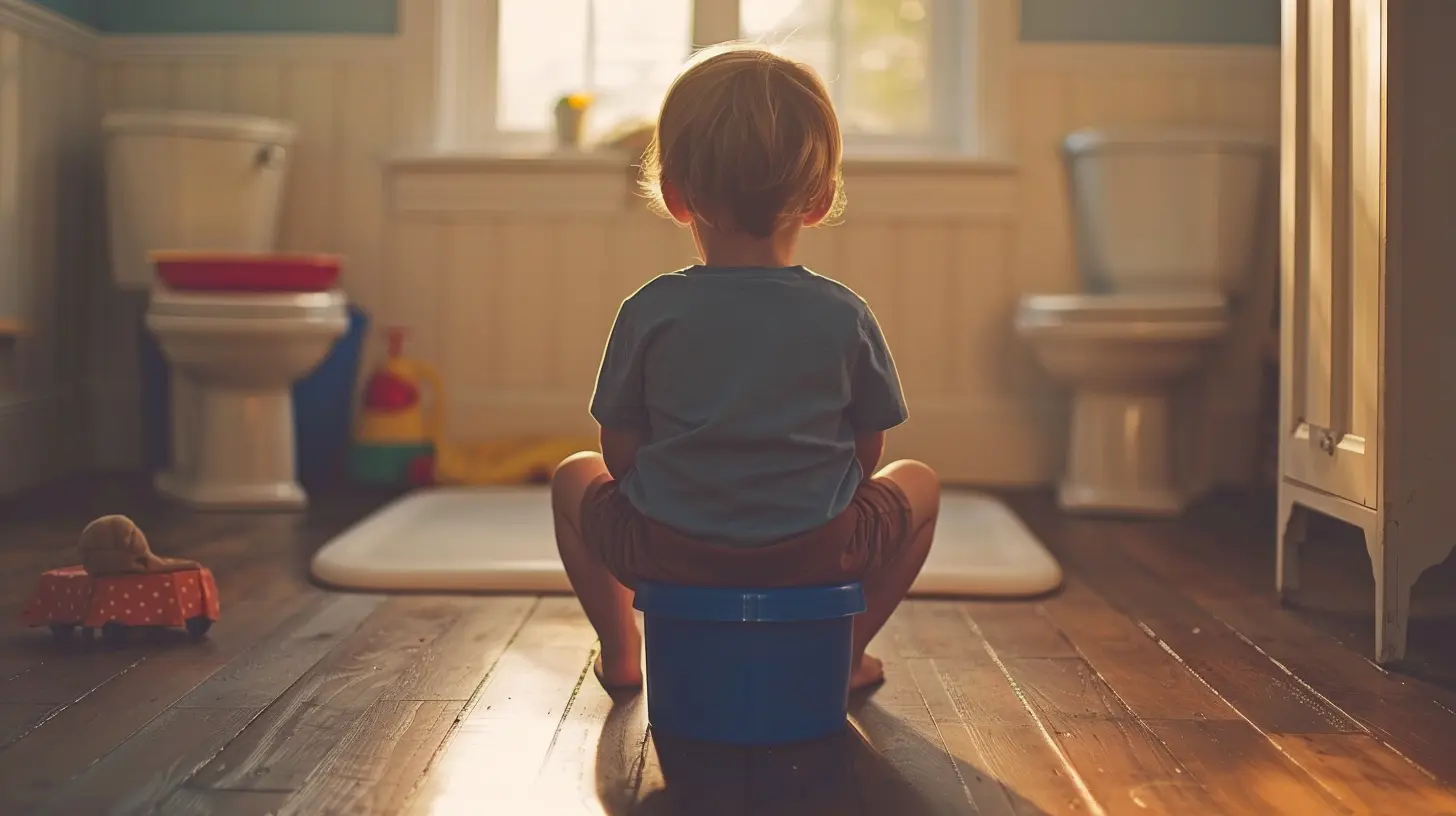
When’s the “Right” Time to Start?
Spoiler alert: There’s no magic age.Sure, your friend’s kid might’ve potty trained at 18 months and now speaks Mandarin. But your child is running their own race — and that is 100% okay.
Sensitive children often benefit from starting later rather than earlier. That gives them time to develop emotionally, gain predictability about their bodies, and feel a bit more control in their world.
Here are a few signs your child might be ready:
- They show interest in the potty or bathroom habits
- They can stay dry for at least two hours
- They tell you when they’re wet or need a change
- They can follow simple instructions
- They seek privacy to poop
If you’re not seeing these yet, no stress. Let it go like Elsa. Forcing it before they're ready can actually backfire and create fear or resistance.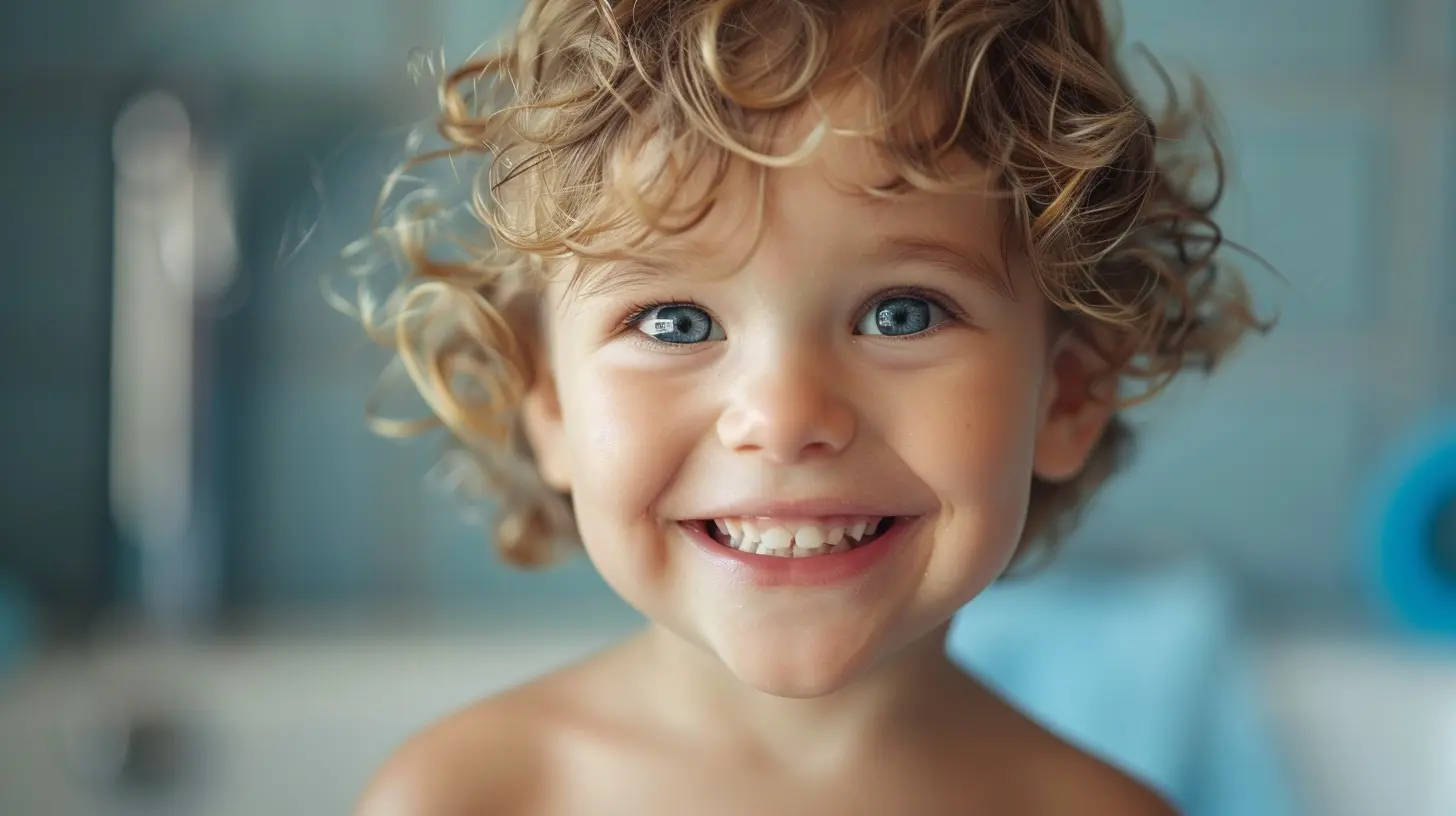
Step-by-Step: Gentle Approaches That Actually Work
1. Ditch the Pressure
First rule of sensitive kid potty club: take off the pressure.Sensitive kids often internalize expectations. Piling on potty pressure is like handing them a ticking time bomb. Instead, try to present the potty as an option, not an obligation.
Say things like:
- “Your body will tell you when it’s ready.”
- “Let’s learn about using the potty — we can try it when you want.”
- “It’s okay to do it at your own pace.”
You’re the coach, not the drill sergeant.
2. Read Books & Watch Shows That Normalize It
Sometimes hearing it from a cartoon bear hits differently.There are tons of lovely children’s books and animated clips that demystify the potty. Look for stories that focus on feelings, not just the mechanics.
You want your child to see using the potty as something everyone learns — and it’s okay to feel nervous, excited, or even confused.
Bonus tip: Read the books outside the bathroom where there’s no pressure attached. Think of it as casual potty prep.
3. Let Them Lead the Way
If your kid loves playing with dolls or stuffed animals, use them to role-play potty time. Let Teddy “go” first. This gives them control — and lets them giggle at Teddy’s awkward potty dance.You can also let your child personalize the experience:
- Pick out a fun potty seat together
- Choose special “potty underwear”
- Make a potty sticker chart that feels like a game, not a job
Think of yourself as a potty doula — you’re just there to support.
4. Use Gentle Language
Words matter. A lot.Instead of saying “You need to go now!” try:
- “Let’s check if your body wants to go.”
- “It’s okay if you don’t go, we’re just practicing sitting.”
Avoid shaming language like “big kids don’t wear diapers” or “that’s gross.” Sensitive children can internalize that as “I am gross,” and trust us — unspooling that later is way harder than a wet pair of pants.
Instead, normalize accidents:
- “Your body’s still learning, and that’s okay.”
- “Oops, next time we’ll try again!”
5. Respect Their Privacy
Picture this: You’re doing something totally new and vulnerable, and someone’s hovering over you with a camera and enthusiastic play-by-play commentary.It's a bit much, right?
Sensitive kids often want privacy while they try. Let them know you’re nearby if they need you, but give them space to sit on the potty alone if they prefer. They need space to figure it out without an audience.
And please, for the love of all things sacred, no potty photos. Ever.
What If They Flat-Out Refuse?
First: breathe. Hide the sticker chart if it’s stressing you both out. Take a step back and ask yourself: Are they truly not ready, or are they feeling overwhelmed?Some kids need an actual break from potty training. Yes, even a full-on, back-to-diapers, sing-the-diaper-song break. This can reset the pressure and allow trust to rebuild.
Try a "potty pause" and revisit in a few weeks. In the meantime, keep the bathroom a positive space, use your potty books, and let them see you using it confidently (yes, you're now a role model in more ways than one).
Night Training: Don’t Lose Sleep Over It
Here’s a wild fact: nighttime dryness is a whole different skillset. Some kids aren’t physically able to stay dry at night until age 5 or older — especially sensitive sleepers.That’s not failure. That’s biology.
Use absorbent pull-ups or overnight diapers and reassure them that dry nights will come. Gently encourage bathroom visits before bedtime and reduce liquids a bit if it helps.
But above all? Don’t make it a big deal.
Potty Regression: The Plot Twist No One Warned You About
So your sensitive little one finally gets the hang of the potty… and then suddenly forgets everything during a family vacation or right when baby #2 arrives.Welcome to regression: when progress moonwalks backward just when you least expect it.
It’s normal. And sensitive kids are especially prone when their world feels upended.
Stay calm.
Offer empathy.
Go back to the basics.
They’ll bounce back.
How Long Will It Take?
Let me give it to you straight: Longer than you hoped, but probably faster than you fear.Sensitive kids may need several weeks (or even months) to fully transition. The key is emotional safety. Once they feel confident and safe, the pieces fall into place.
This isn’t a race or a performance.
Think of it more like gardening — you’re planting seeds, nurturing growth, and celebrating those first little sprouts (even if they smell like pee).
What If You’re Losing Your Mind?
Good news: You’re human. And probably running on caffeine and mismatched socks.If you’re running low on patience, feel like a total failure, or considering moving into a diaper-free treehouse, remind yourself: This is not forever.
Reach out to supportive friends, join a parenting group, or talk to a pediatrician if you're worried.
And above all, remember that your child’s sensitivity is a strength. It means they’re thoughtful, emotionally aware, and deeply connected to the world around them.
Just imagine how kind and caring they’ll grow up to be — and yes, they’ll be doing it in real underwear.
Final Wipe (Pun Intended)
Potty training a sensitive child is not for the faint of heart, but it’s doable — with love, creativity, and a ridiculous amount of hand soap. Keep it low pressure, tune into your child’s needs, and celebrate every tiny win.There’s no perfect path. Just your path. With your spectacularly sensitive, beautifully complex child.
And when in doubt, take a deep breath... and maybe carry an extra pair of pants. Just in case.
all images in this post were generated using AI tools
Category:
Potty TrainingAuthor:

Maya Underwood
Discussion
rate this article
1 comments
Hadley Estes
Thank you for addressing such an important topic! Potty training can be challenging, especially for sensitive kids. Your gentle approaches provide valuable insights and reassurance for parents navigating this journey. It’s comforting to know there are compassionate strategies that honor our children's emotional needs. We appreciate your guidance!
October 20, 2025 at 3:29 AM

Maya Underwood
Thank you so much for your kind words! I'm glad you found the insights helpful for navigating potty training with sensitive kids. Your support means a lot!


